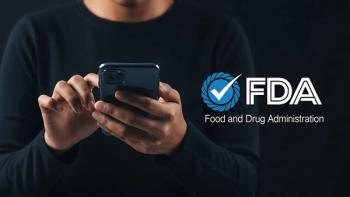
Chemotherapy-Free Therapy for CLL: Communication and Adherence
Transcript:
Harry P. Erba, M.D., Ph.D.: Camille, when you talk to patients and see patients in clinic with CLL [chronic lymphocytic leukemia] on ibrutinib, what side effects are you looking for particularly in terms of how they’re tolerating the drug? What do you ask them about?
Camille Ballance, MSN, FNP-BC: Once they get the drug, we always see them about two weeks after to see where things are. Sometimes the fatigue will get worse before it gets better, depending on what’s going on with the patient, and so I let them know that ahead of time, that it will get better. Those first few weeks can be rough. There can be increased joint pain. There can be rashes. I feel as though we see a lot of rashes, and so that’s something to watch for. Obviously, there are bleeding risks. There are also issues with the heart, so I’m always asking, “Are you having dizziness, shortness of breath,” all of those things, “Is your heart racing?” We have to watch for that. But the first few weeks you really have to encourage them that it will get better because some patients have a hard time.
Harry P. Erba, M.D., Ph.D.: Yes, we have to be really careful about how we educate them about things that they were doing up until ibrutinib. For example, with the bleeding risk, maybe no aspirin or other drugs that might increase the bleeding risk. It’s important education.
Camille Ballance, MSN, FNP-BC: Absolutely.
Lisa Ferguson: I think Nathan was told not to use a table saw, just in case.
Camille Ballance, MSN, FNP-BC: Yes, absolutely. Right now, it’s no heavy machinery. We’re not cutting down trees.
Harry P. Erba, M.D., Ph.D.: I’ve been told that for years.
Ian W. Flinn, M.D., Ph.D.: Did we tell him that or did you tell him that?
Lisa Ferguson: No, actually I think it was you.
Camille Ballance, MSN, FNP-BC: I think I probably told him that. I tell all of our patients that.
Harry P. Erba, M.D., Ph.D.: Camille, sticking with you, how do you ask them about adherence? The drug doesn’t work unless it passes the lips.
Camille Ballance, MSN, FNP-BC: A lot of times I just start with, “Are you having any trouble getting your refills? Are you getting them on time?” I ask about that a lot to be sure that they’re getting them.
Harry P. Erba, M.D., Ph.D.: Why? Don’t you just go to Walgreens and pick it up?
Camille Ballance, MSN, FNP-BC: They have to come from a specialty pharmacy. We’re very fortunate that we have a specialty pharmacy with the practice that is amazing, and it calls the patient, they do education, and they ensure adherence. But still with insurance and assistance and with the turn of the year and all of that—people’s insurance changes—I always start with that. And it opens the conversation.
Harry P. Erba, M.D., Ph.D.: Doreen, how about other ways, forgetting to take your pill?
Doreen Zetterlund: I think adherence is so important. You set yourself a timer on your phone if you need to. I’m keeping a diary with the clinical trial, so that helps me to remember because I have to check off that I’ve taken the medication. We’re so lucky to be alive, we have to do our part and adhere to the dosing requirements and our schedules.
Harry P. Erba, M.D., Ph.D.: Nathan, are there any restrictions on what else you can take around the time you take that pill, any food restrictions or other drugs?
Nathan Ferguson: The main one with ibrutinib is grapefruit, and some certain type of orange.
Harry P. Erba, M.D., Ph.D.: Seville.
Nathan Ferguson: Seville.
Harry P. Erba, M.D., Ph.D.: I’ve never seen one.
Nathan Ferguson: It’s in marmalade, so I avoid marmalade. Other than that, for me it’s hard because I was otherwise healthy, so I went through periods where I took a multivitamin, but I was on zero prescription medications prior to this. I do my best to stick to my daily routine of taking it.
Ian W. Flinn, M.D., Ph.D.: One point I would like to make is that it’s also important for patients on these drugs, ibrutinib or other drugs, to let their doctors or their providers know if some other doctor prescribes another medication. Because there are now very complicated drug-drug interactions, and we always do a computer search and look at someone’s new medications because it can dramatically change how the drug is metabolized in the body and either make the dose much higher than intended or much lower. And so, it’s important that they discuss that with their physicians.
Harry P. Erba, M.D., Ph.D.: That’s critically important to do, and with their oncologist. Don’t ask the doctor who’s prescribing the other drug, ask the oncologist who’s prescribing the chemotherapy pill. And along those lines, the other group of people who have kept us and our patients out of harm’s way are the pharmacists. But they have a challenge here because, as Camille pointed out, these drugs are coming from specialty pharmacies, and they may not know that our patients who are being prescribed one thing by their PCP [primary care physician] or some specialist are getting that drug. So again, let the pharmacist know but especially let your oncologist know. Yes?
Camille Ballance, MSN, FNP-BC: To back up what Ian was saying, there are herbal supplements. We really have to be careful with herbal supplements, too, because we don’t know how some of these things react with these oral drugs. The patients really have to make sure to let us know if they’re thinking about starting even a diet pill or anything that may seem safe over the counter.
Transcript Edited for Clarity




